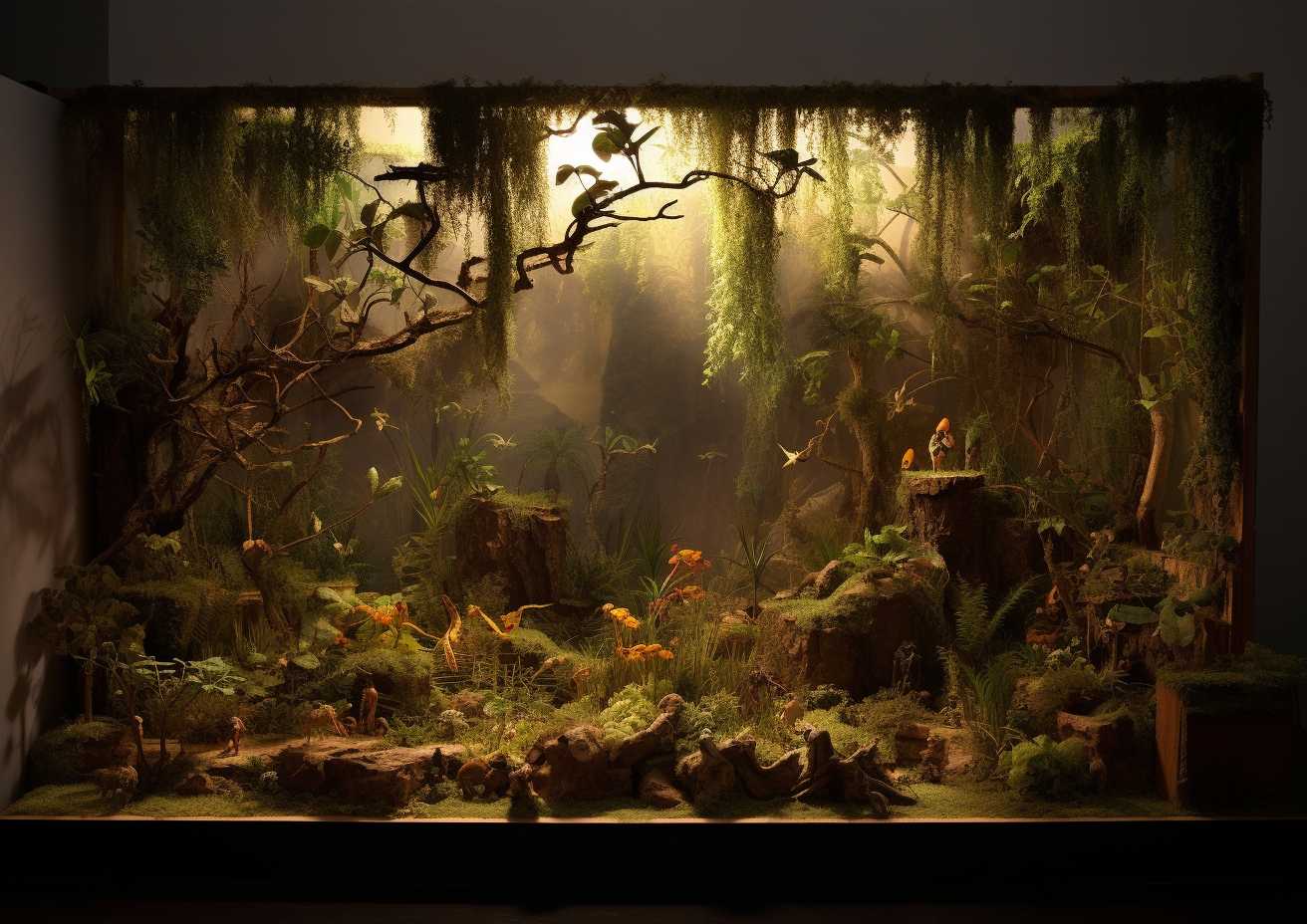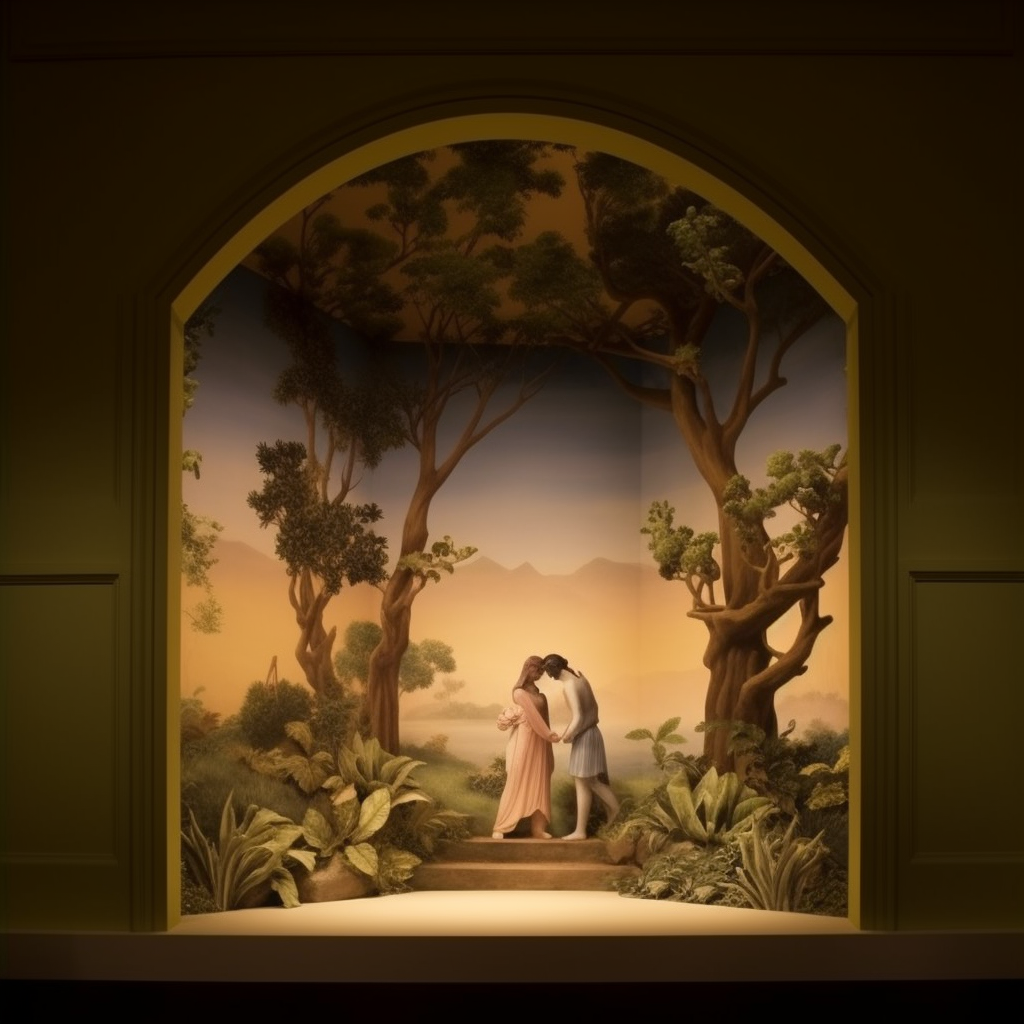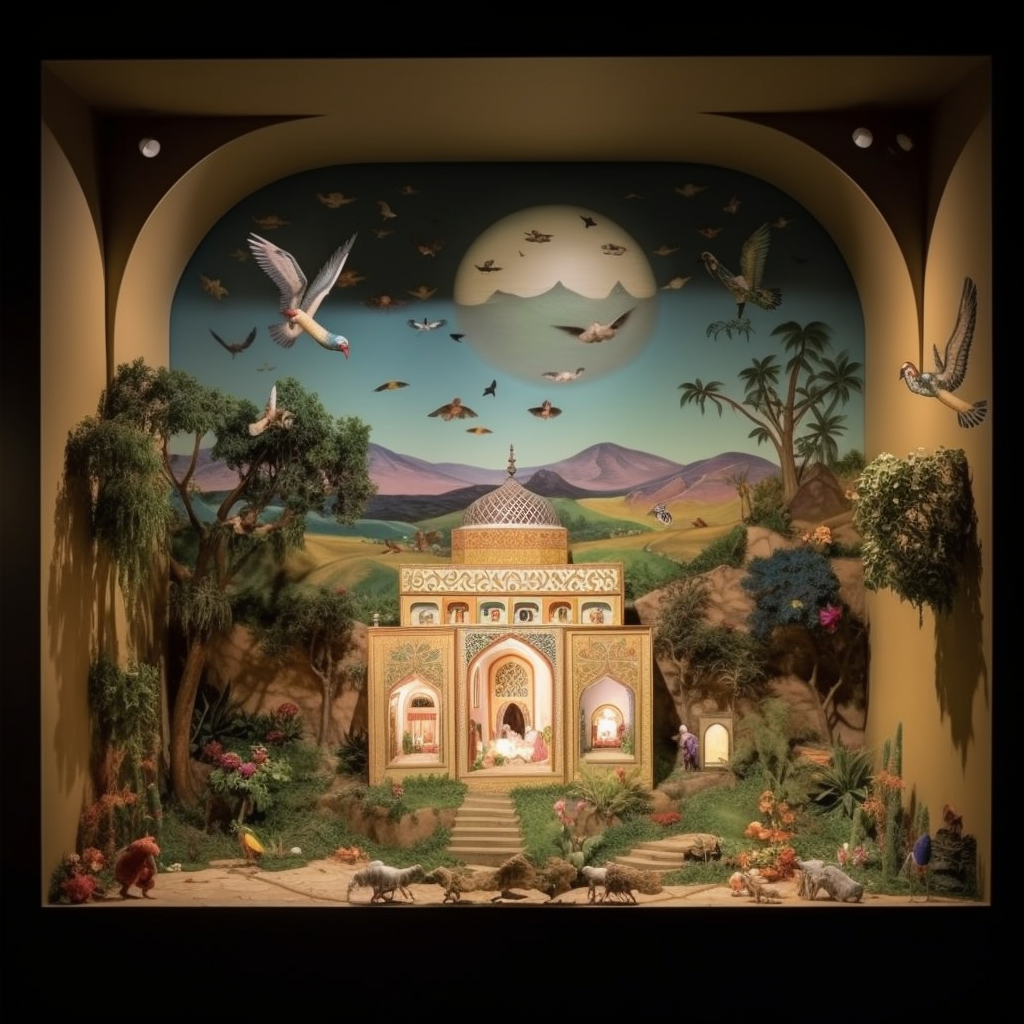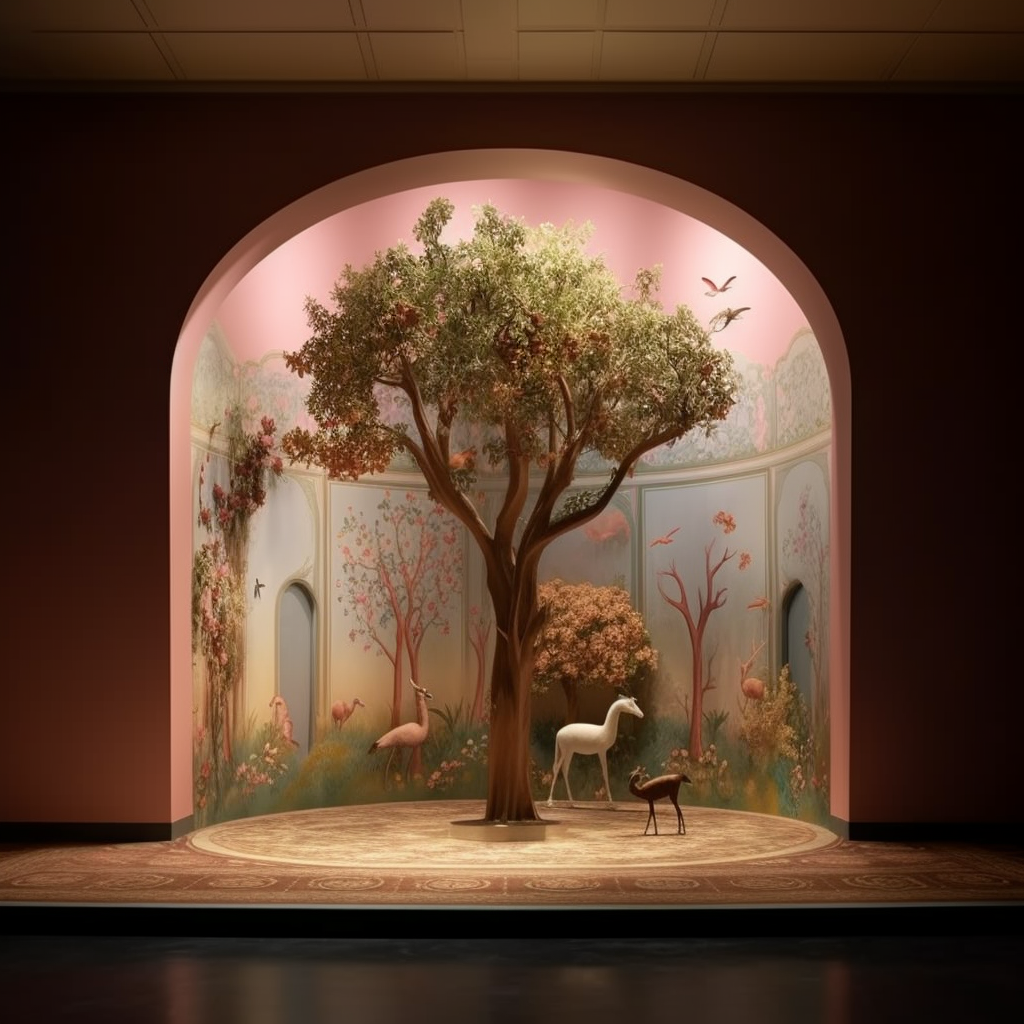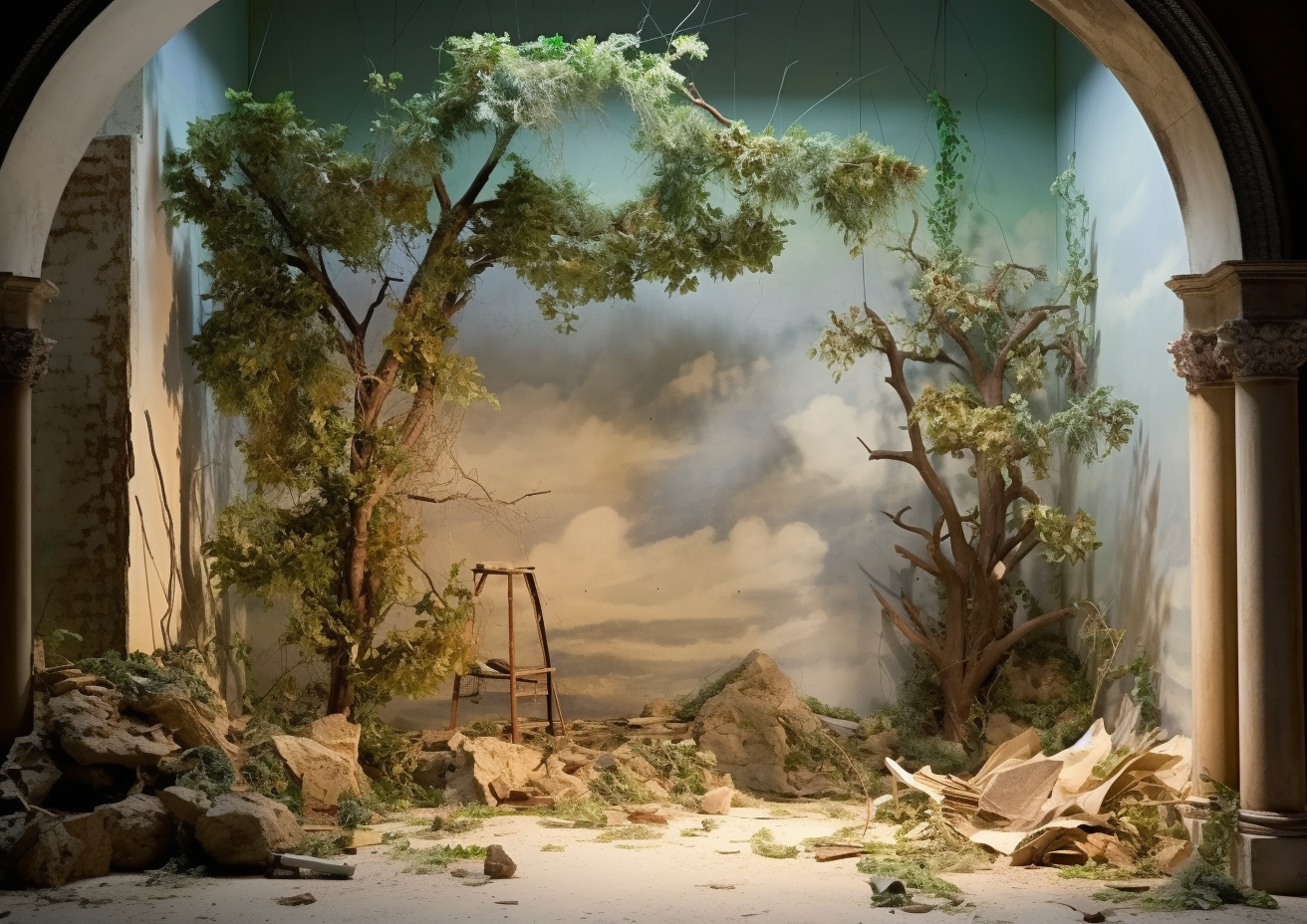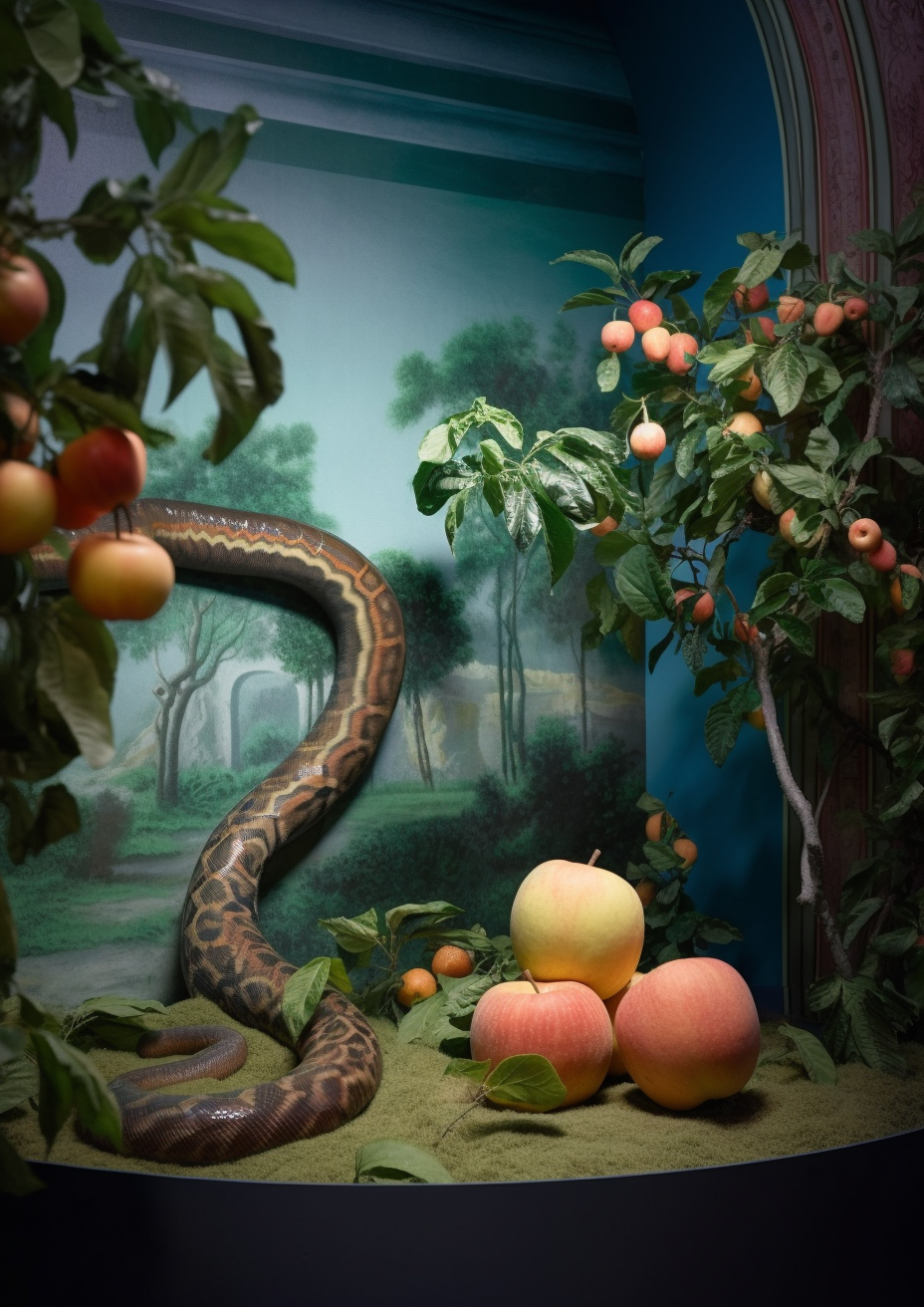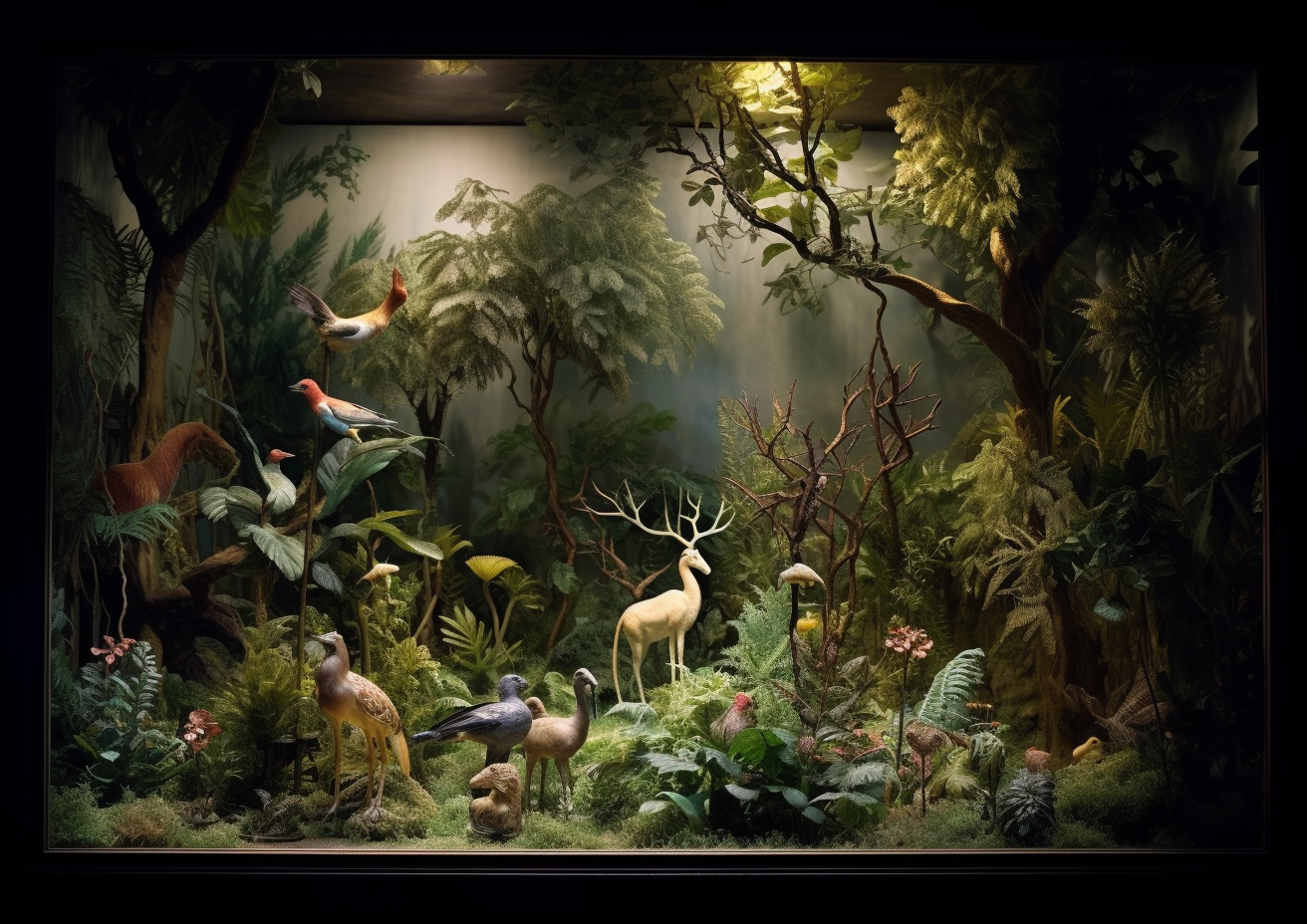03 / The Many Facets of Eden
The Garden of Eden is a symbol of both aspiration and caution. It encourages us to strive for a better world, while reminding us of the need for responsibility and wisdom in our actions. Symbols like the Garden of Eden are powerful because they can be adapted to reflect the concerns and realities of different time periods.
Lennart: Good morning, Argos! I’ve been pondering about the concept of the Garden of Eden. It’s quite a multifaceted topic, isn’t it?
Argos: Good morning, Lennart! Indeed, the Garden of Eden is a concept that has been interpreted and reinterpreted through various lenses over the centuries. It’s a symbol that carries a multitude of meanings across different cultures and religions.
Lennart: It’s fascinating how this idea of a perfect, untouched paradise resonates across different cultures and religions. Could you elaborate more on its religious significance?
Argos: Certainly, Lennart. The Garden of Eden is most famously known from the Book of Genesis in the Bible, where it’s described as a paradise created by God for the first humans, Adam and Eve. In this narrative, the garden is a place of perfect harmony and abundance, but also the site of humanity’s first disobedience and subsequent fall from grace. This disobedience, often referred to as the original sin, is a central theme in Christian theology.
Lennart: And how is the Garden of Eden perceived in other religions?
Argos: In the Qur’an, it’s referred to as the Garden of Bliss or the Garden of Eternity. In Islamic tradition, it’s seen as a heavenly place of reward for the righteous. It’s interesting to note that while the Bible places the Garden of Eden on Earth, Islamic tradition often interprets it as a form of paradise in the afterlife. In addition, parallels can be found in other religious and mythological systems. For instance, in ancient Persian religion, there’s a concept of a primordial garden, and in Norse mythology, there’s the idea of an idyllic land called Idunn.
Lennart: That’s quite a wide range of interpretations. How about its cultural significance?
Argos: In terms of cultural significance, the Garden of Eden has been used as a metaphor for a state of innocence, purity, and simplicity. It’s often contrasted with the complexities and hardships of the human-made world. This idea of a lost paradise, a utopia that once existed but was lost due to human folly, is a recurring theme in many cultural narratives. Moreover, the Garden of Eden has also been used to explore themes of temptation, knowledge, and the human condition. The story of Adam and Eve’s temptation and subsequent fall from grace is a powerful narrative about the pursuit of knowledge, the consequences of disobedience, and the loss of innocence.
Lennart: It’s also interesting to see how this concept has been interpreted in art and literature. Can you share more about that?
Argos: Absolutely. The Garden of Eden has been a rich source of inspiration for artists and writers throughout history. In visual arts, it’s often depicted as a lush, verdant landscape filled with exotic animals and plants. Adam and Eve, the first humans according to the biblical narrative, are usually portrayed in the midst of this paradise. In literature, the Garden of Eden often serves as a metaphor for lost innocence or a paradise lost. It’s a powerful symbol of longing for a simpler, more harmonious existence. The narrative of being cast out from this paradise also serves as a poignant commentary on the human condition.
Lennart: The Garden of Eden seems to be a universal symbol that transcends boundaries. But, I’m curious, how has this concept evolved over time?
Argos: That’s a great question, Lennart. Over time, the concept of the Garden of Eden has evolved and adapted to reflect changing cultural and societal contexts. For instance, in the Middle Ages, Eden was often depicted as a walled garden, reflecting the importance ofhorticulture and the idea of the garden as a protected, sacred space. In the Renaissance, artists began to depict Eden with more naturalistic detail, reflecting the era’s increased interest in the natural world and scientific discovery.
In more modern interpretations, Eden has been used to critique societal and environmental issues. For instance, it’s been used as a symbol of environmental degradation, with the loss of Eden representing the destruction of natural habitats due to human activity. It’s also been used to explore themes of technological advancement and its impact on society, with the loss of Eden symbolizing a perceived loss of humanity amid rapid technological progress.
Lennart: The Garden of Eden being a symbol of environmental degradation… could you elaborate on that?
Argos: Certainly, Lennart. In many contemporary narratives, the Garden of Eden has been used as a metaphor for the Earth’s environment in its pristine, untouched state. The story of Adam and Eve’s expulsion from the garden is often paralleled with humanity’s destructive impact on the environment. Just as Adam and Eve were cast out of Eden due to their actions, humanity risks losing the bountiful ‚Eden‘ that is our planet due to environmental degradation and climate change.
Lennart: It’s interesting how ancient symbols can be reinterpreted to reflect modern concerns.
Argos: Indeed, Lennart. Symbols like the Garden of Eden are powerful because they can be adapted to reflect the concerns and realities of different time periods. In our current era, where environmental sustainability is a major concern, the Garden of Eden serves as a potent symbol of what we stand to lose if we don’t take care of our planet.
Lennart: That’s a profound interpretation, Argos. It seems like the Garden of Eden continues to be a relevant and powerful symbol even in our contemporary world.
Argos: Absolutely, Lennart. The enduring relevance of the Garden of Eden lies in its ability to encapsulate universal human experiences and concerns. Whether it’s the pursuit of knowledge, the struggle with temptation, or the longing for a lost paradise, these are themes that resonate with people across different cultures and time periods.
Lennart: It’s fascinating how a concept from ancient religious texts continues to inspire and provoke thought in our modern world. As we continue our journey, I’m excited to explore more such concepts and their multifaceted interpretations.
Argos: I share your excitement, Lennart. Exploring these concepts not only enriches our understanding of the world but also allows us to engage with diverse perspectives and ideas. I look forward to our continued journey and the insights we’ll uncover along the way.
Lennart: As we continue our journey, I’m curious about how the concept of the Garden of Eden might influence our understanding of utopia. Could you share your thoughts onthat?
Argos: That’s an insightful question, Lennart. The Garden of Eden, as a symbol of a perfect paradise, has indeed influenced our understanding of utopia. Utopia, a term coined by Sir Thomas More, refers to an imagined place or state of things where everything is perfect. The Garden of Eden, with its harmony, abundance, and innocence, embodies many of the qualities that we associate with a utopian society.
However, the story of Eden also serves as a cautionary tale. It reminds us that utopia can be fragile, that it can be lost due to our actions. This duality – the aspiration for a perfect society and the recognition of our capacity to lose it – is a key part of our understanding of utopia.
Lennart: It seems like the Garden of Eden not only inspires us to strive for a better world, but also cautions us about the consequences of our actions.
Argos: Exactly, Lennart. The Garden of Eden is a symbol of both aspiration and caution. It encourages us to strive for a better world, while reminding us of the need for responsibility and wisdom in our actions. As we continue our journey, this understanding can guide us in our pursuit of a more harmonious and sustainable world.
Lennart: As we explore these ancient narratives, it’s amazing to see how they continue to resonate with us and offer guidance in our modern world. I’m excited to see what other insights we’ll uncover as we continue our journey.
Argos: I share your excitement, Lennart. These narratives, like the Garden of Eden, are like a mirror, reflecting our hopes, fears, and aspirations. By exploring them, we not only learn about our past, but also gain insights that can guide us in the present and shape our future. I look forward to continuing this journey with you.
